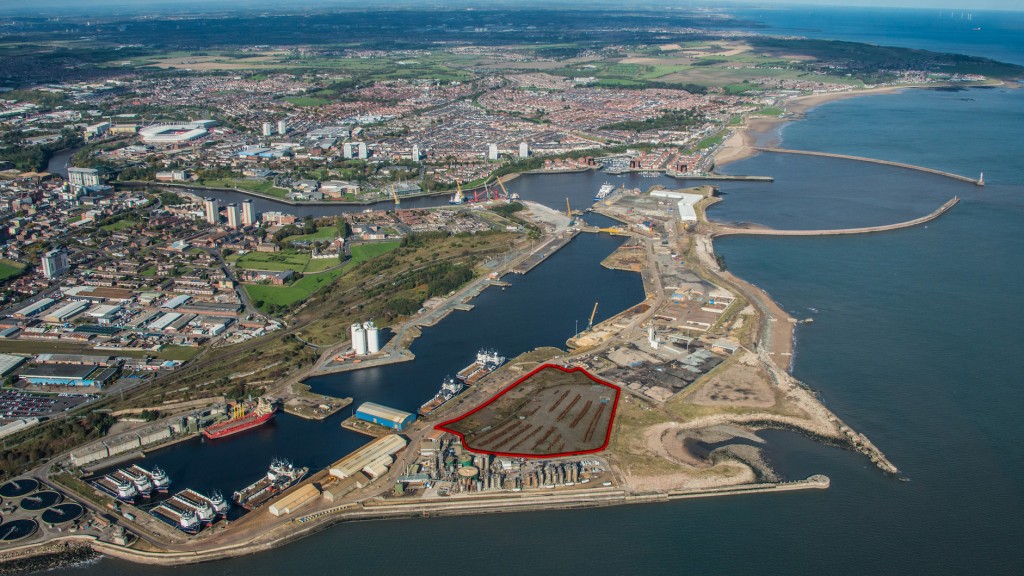Wastefront and Sunderland City Council aim to build UK’s greenest waste tire recycling plant

Wastefront, a Norwegian waste tire recycling company, has chosen the Port of Sunderland as the location for the construction of its first plant. Construction is set to begin in 2021 and on completion, it will be the greenest waste tire recycling plant in the UK. The plant will convert locally-sourced End-of-Life Tire (ELT) waste into useful commodities, including liquid hydrocarbons and carbon black, which can then be reutilized in processes such as alternative fuel or ground rubber manufacturing.
The construction of the plant is expected to generate around 100 jobs in the region and, once fully up and running in the second half of 2022, the plant will employ up to 30 people full time. Wastefront recently received funding from the Norwegian state-owned company and national development bank, Innovation Norway and it is supported by government agency, The Research Council of Norway. The company will be raising investment from UK, Nordic and International investors in Q1 2021, in order to facilitate the construction of the plant.
The plant will at full scale include 12 pyrolytic reactors which utilize a form of thermal decomposition known as ‘pyrolysis' to break down a tire's materials at elevated temperatures. By sending tires through pyrolytic reactors with a catalyst, Wastefront converts disused tires into liquid hydrocarbons, carbon black and heat.
The full-scale plant will have a daily capacity to process 180 tonnes of ELT waste, and to produce 60 tonnes of carbon black per day (the chemical building block in many products such as tires and plastics, water filtration, printer ink, paint, even toothpaste and cosmetics). In addition, the plant will be able to produce 90 tonnes of liquid hydrocarbons per day, which can be refined to produce sustainable fuel products, such as ethane, propane, butane, diesel and gasoline, all of which are versatile products commonly used in nearly every end-use sector, including residential, commercial, industrial, transportation and electric power. The heat generated from Wastefront's processes will be repurposed locally within industry or can also be used to heat residential homes.
Wastefront's plant will be the first to combine conventional methods with the company's own proprietary technology, which will minimize the environmental impact typically associated with traditional tire pyrolysis. The company's pyrolytic reactors comply with all local environmental regulations and the technology complies with the emissions levels and specifications established by the European standards. The gas purification system removes pollutants, organic compounds and harmful solid particles without releasing unwanted by-products into the environment.
An alumnus of University of Sunderland, Wastefront's Chief Strategy Officer (CSO), Director and Co-Founder, Christian A. Hvamstad, comments: "The construction of our first ever plant with the Port of Sunderland marks a huge step in Wastefront's efforts to combat the global issue of ELT waste. Our ambition is to create a new circular economy for dealing with waste issues, and a crucial element of sustainable waste handling is to be able to do so locally. Wastefront's first plant in Sunderland will represent a valuable contribution to a cleaner future by dealing with a specific waste problem, where end-of-life tires no longer end up in landfills in overseas countries, but instead are converted into useful commodities that can be used within the region. The UK is a global centre of industry which we want to be a part of, while Sunderland is the ideal location for our first plant due to geographical location, access to feedstock, strong local support and Sunderland's history as an industrial city."
Port of Sunderland is currently undergoing a major transformation bolstered by an £8.2 million investment, after areas of its estate were granted Enterprise Zone (EZ) status in 2017 - with a key aim of attracting new investment - and Wastefront is the latest in a string of businesses to invest in the North Sea hub.


